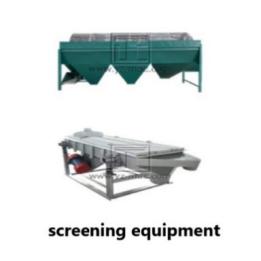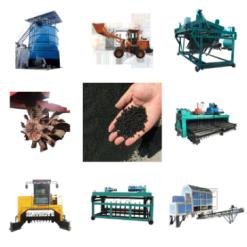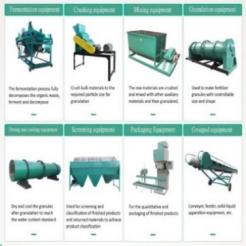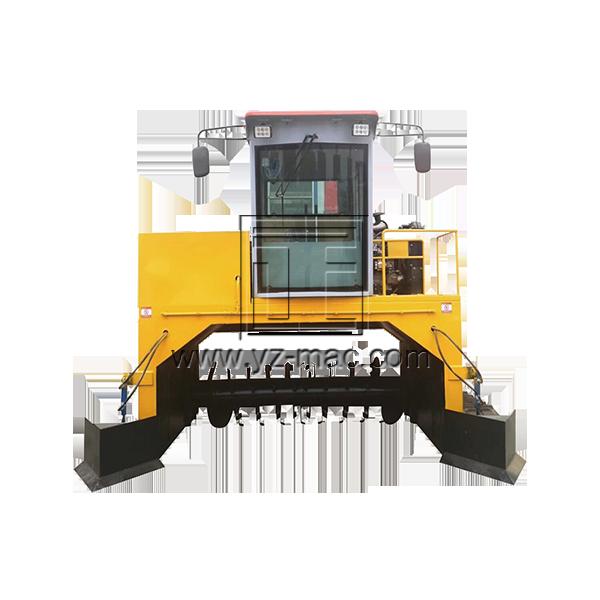Self propelled compost turner
A self-propelled compost turner is a powerful and efficient machine designed to accelerate the composting process by mechanically turning and mixing organic materials. Unlike traditional manual methods, a self-propelled compost turner automates the turning process, ensuring consistent aeration and mixing for optimal compost development.
Benefits of a Self-Propelled Compost Turner:
Increased Efficiency: The self-propelled feature eliminates the need for manual labor, significantly improving the efficiency of the composting process. The machine can cover large composting areas quickly and consistently, ensuring uniform aeration and mixing, which accelerates the decomposition process.
Consistent Aeration and Mixing: A self-propelled compost turner uniformly mixes and aerates the organic materials throughout the compost pile. This promotes the circulation of oxygen, essential for the growth of aerobic microorganisms that facilitate decomposition. Consistent aeration and mixing result in faster breakdown of organic matter, leading to high-quality compost.
Time and Labor Savings: By automating the turning process, a self-propelled compost turner saves significant time and reduces the labor required for manual turning. This allows compost operators to focus on other tasks and increases overall productivity in composting operations.
Improved Compost Quality: The regular turning and mixing performed by a self-propelled compost turner create an ideal environment for microorganisms to break down organic materials efficiently. This results in compost with improved nutrient content, better moisture retention, and reduced odors.
Working Principle of a Self-Propelled Compost Turner:
A self-propelled compost turner typically consists of a sturdy frame with a turning mechanism, often equipped with blades or paddles. The machine moves along the compost pile, while the turning mechanism lifts and tumbles the materials, ensuring proper aeration and mixing. Some self-propelled compost turners may have adjustable features to control the depth of turning and the speed of operation.
Applications of Self-Propelled Compost Turners:
Large-Scale Composting Facilities: Self-propelled compost turners are widely used in large-scale composting facilities, such as municipal composting centers or commercial composting operations. These machines efficiently handle significant volumes of organic waste materials, ensuring thorough aeration and mixing for optimal decomposition.
Agricultural and Farming Operations: Self-propelled compost turners find applications in agricultural and farming operations. They help manage farm waste, crop residues, and livestock manure, transforming them into nutrient-rich compost for soil improvement and organic fertilizer production.
Landscaping and Green Waste Recycling: Self-propelled compost turners play a crucial role in landscaping and green waste recycling. They efficiently process green waste, such as leaves, grass clippings, and prunings, transforming them into high-quality compost suitable for landscaping projects, gardens, and nurseries.
Organic Waste Management: Self-propelled compost turners are valuable tools in organic waste management programs. They can handle a wide variety of organic waste materials, including food waste from restaurants, institutions, and residential areas, diverting them from landfills and producing valuable compost for soil enrichment.
A self-propelled compost turner offers numerous benefits in terms of efficiency, consistent aeration and mixing, time and labor savings, and improved compost quality. With its ability to automate the turning process, this machine enhances composting operations in large-scale facilities, agricultural operations, landscaping, and organic waste management programs.








